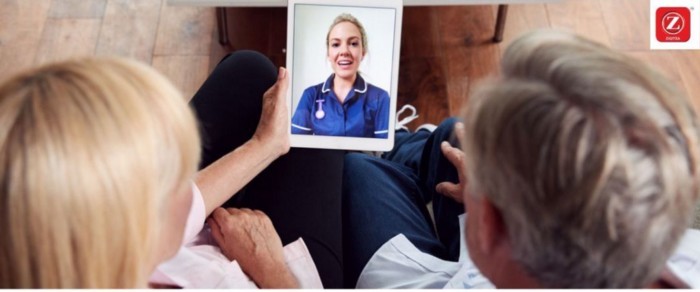The development of telemedicine has been recognized as a necessity by the healthcare sector to stay up with the increasingly digitized world. By using telecommunications tools like video, phone, and text, medical personnel can diagnose and treat patients at a distance. This is known as telemedicine.
One of the top healthcare service providers in India, Ziqitza Healthcare, claims that throughout the years, telemedicine in India has shown to be one of the best advancements in the healthcare industry. In example, many healthcare providers are now willing to assess their patients via computers and smartphones thanks to the COVID-19 epidemic. A lifeline has been provided by virtual care during a global health crisis. The platform’s unexpected rise might have long-term effects.
Telemedicine and telehealth provide a lot of benefits. These basic advantages include, among others, the following:
- Increases access to healthcare: According to Ziqitza, this is perhaps the most significant benefit of telemedicine: it increases access to healthcare, particularly in remote areas and difficult communities.
Prior to the development of telemedicine, many people in rural areas and senior living homes found it difficult to access necessary healthcare services due to long distances or difficult conditions, according to Ziqitza Healthcare ltd.
Everyone can now easily access various health services, such as preventive health screenings and mental health diagnoses, without leaving their homes, thanks to telemedicine.
Essentially, the use of telehealth services has contributed to ensuring that everyone has equal access to healthcare.
- It safeguards patients and medical personnel: Because of the risk of infection and the increasing demands on the healthcare sector, telemedicine has become a safe and necessary tool. Ziqitza Rajasthan correctly points out that the COVID-19 pandemic has tested many healthcare institutions’ ability to protect their patients and personnel.
Notably, several healthcare workers in India became infected with the coronavirus during its peak. Because of the high risk of transmission, telehealth services have emerged as the most secure and convenient alternative to hospital visits.
Indeed, because telemedicine reduces personal contact, the risk of infection among patients and medical personnel is reduced significantly. In fact, since telemedicine reduces in-person contact, both patients and medical staff are at considerably lower risk of contracting an infection.
- Reduces the need for hospital beds and medical supplies: By allowing low-risk patients to remain at home, the use of telemedicine has also reduced the need for medical equipment and hospital beds. Through telehealth services, doctors can already connect with these low-risk patients using Zoom and other internet tools. This reduces their exposure and allows them to use less hospital space and protective gear.
Ziqitza Limited explains that the COVID-19 epidemic is putting an enormous strain on the healthcare sector due to an increase in patients and medical needs. Due to this, many individuals believe that telemedicine is essential in order to address future instances of hospital overcrowding and supply shortages.
- Offers reassurance and convenience: According to ZHL Rajasthan, telemedicine has eliminated the necessity for individuals to travel to the hospital or a doctor’s office if they are ill. This has made it simpler for them to integrate medical consultations into their hectic schedules or to start the Home Recovery Programme right away. After all, in today’s hectic and fast-paced world, comfort and convenience are two of the most essential advantages of telemedicine.
- It improves access to healthcare in senior living communities: According to Ziqitza Limited Rajasthan, Telemedicine can increase convenience, improve care and disease management, and lower hospitalisation rates for high-risk adults in senior housing communities.
- It helps specialties like cardiology and psychiatry: The pandemic has compelled specialists to broaden telehealth for critical needs such as cardiovascular care. Telecardiology refers to virtual home visits, smartphone-based rehab exercises, and nurse-assisted consultations at satellite clinics.
According to Ziqitza Health Care Limited, rapid adoption of telehealth could increase access for disadvantaged communities struggling with both a lack of resources and bad connectivity. As the world becomes more digitised, the healthcare sector has discovered an effective way to combine technological modernization with the enhancement of healthcare services, giving rise to the concept of digital health. You can take care of all of your medical needs without much hassle with just a few clicks!


